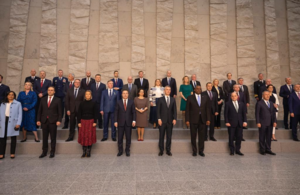Facilitating a path towards fair and independent elections in Libya
Thank you Mr President. I would like to thank Under-Secretary-General DiCarlo, Ambassador Tirumurti and Dr Shaiter for briefing the Council today. Tensions in Libya have risen since we last met on this subject, so today’s discussion is particularly timely. I will make three points.
First, I would like to echo the Secretary-General’s call for de-escalation. All actors, internal and external, should refrain from any moves that could undermine stability or deepen divisions in Libya and threaten to undo the hard-won progress achieved over the last two years. The United Kingdom strongly supports Special Adviser Stephanie Williams and urges those on both sides of the current impasse to accept her offer to facilitate dialogue.
Second, as we’ve heard today, 2.8 million Libyans have made their aspiration for elections clear. We support Special Adviser Williams’ efforts to mediate between the House of Representatives and High State Council to establish a constitutional basis for elections. Libya’s political leaders must set aside narrow interests and engage seriously to address the underlying conditions that prevented elections from going ahead last December. Whilst Libya lurches between political crises, it’s Libyan people who continue to suffer from a lack of proper service delivery, an unstable economy, and fragile security.
Third, we call on all Libyan parties to protect the independence, integrity and reunification of public institutions. The National Oil Corporation should not be politicised and must be able to fulfil its duties without interference – attempts to shut down oil production are concerning and are only to the detriment of the Libyan economy and its people. Libyan public institutions are there to serve the whole of Libya and should be empowered to do so.
To conclude, Libya is at a crossroads. There is a real risk of dangerous escalation that could unravel the hard-won ceasefire and threaten Libya’s stability. It is now incumbent on all of us to facilitate a path to the elections the Libyan people are waiting for. Thank you, Mr President.


